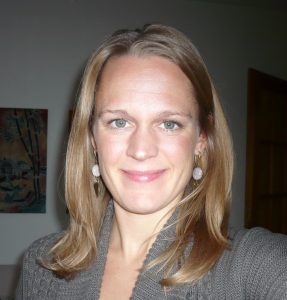Indigenous Micro Cultural Safety Course to be Available for U of T Students
April 5/2021
by Françoise Makanda, Communications Officer at Dalla Lana School of Public Health
A team at the Waakebiness-Bryce Institute for Indigenous Health (WBIIH) is delivering two cultural safety courses online to ensure that the next generation of health professionals is better equipped to provide care to Indigenous people.
U of T students at the Faculty of Medicine, Bloomberg Nursing and Factor-Inwentash Faculty of Social Work are assisting the team through a survey to develop three foundational trainings for their new course ‘The New Respect Indigenous Cultural Safety Online.’ The course will be available by next year.
“We want to run a pre-survey for baseline knowledge and experience with Indigenous cultural safety to give us a sense of where people are at,” says Tammy MacLean, a DLSPH researcher who is running the project alongside supervisor and project lead Angela Mashford Pringle.
“We’re hoping they get safety-first training—if anyone should be receiving this training, it should be our emerging leaders and it should start in university,” she adds. “That is where the accountability lies.”
Cultural safety courses help participants understand how their beliefs and behaviours may affect the quality of service they provide to service users, or in this case, Indigenous peoples. In this course, participants are asked to understand their motivations and their impact when interacting with Indigenous people.
Peterborough Public Health has already received the WBIIH’s Cultural Safety Micro-Credential Course in the last month. Local Indigenous people and organizations filmed short segments that were woven together to deliver the nine modules for the public health staff to watch. The team will gauge medical professionals’ knowledge of Indigenous health in a safe and culturally competent way. The results which will be published this summer will support an Ontario-based curriculum for health professionals.
“The idea is to put together a curriculum. Part of that curriculum will look at existing evidence and best practices but it will also involve bringing together a community of Elders across Canada to provide insights and guidance into what should be included in the cultural safety curriculum,” says MacLean.
The training takes place online. Once completed, researchers will evaluate the changes to participants’ social, physical and spiritual behaviour. “That will give us a sense of the initial responses to the training and how successful it was. The long-term approach is to work directly with those faculties and the educators to incorporate that in the professional health training programs,” she says.
“Government currently offer these types of training but they’re not health-focused,” says MacLean. “We are going to try to understand what are the best practices or current knowledge is and then create a course on Indigenous safety training. It intends to be a bit different from current cultural safety training.”
As a nurse, MacLean took a keen interest in Indigenous health very early in her studies. Then during a posting in Inuvik, North West Territories, she noticed the challenges in delivering healthcare in the North. “It stuck with me,” she says.
She took on a role at WBIIH as a Postdoctoral fellow which mirrored her new-found focus through these courses.
MacLean is incorporating a lot of this knowledge. Her thesis, which she defended last year, focused on men from Ivory Coast, intimate violence and how they experienced changes in their relationships.
Her findings outline important learning: “Learning is changing behaviour. There’s a parallel.”
To learn more about the project, visit http://www.phesc.ca/indigenous
